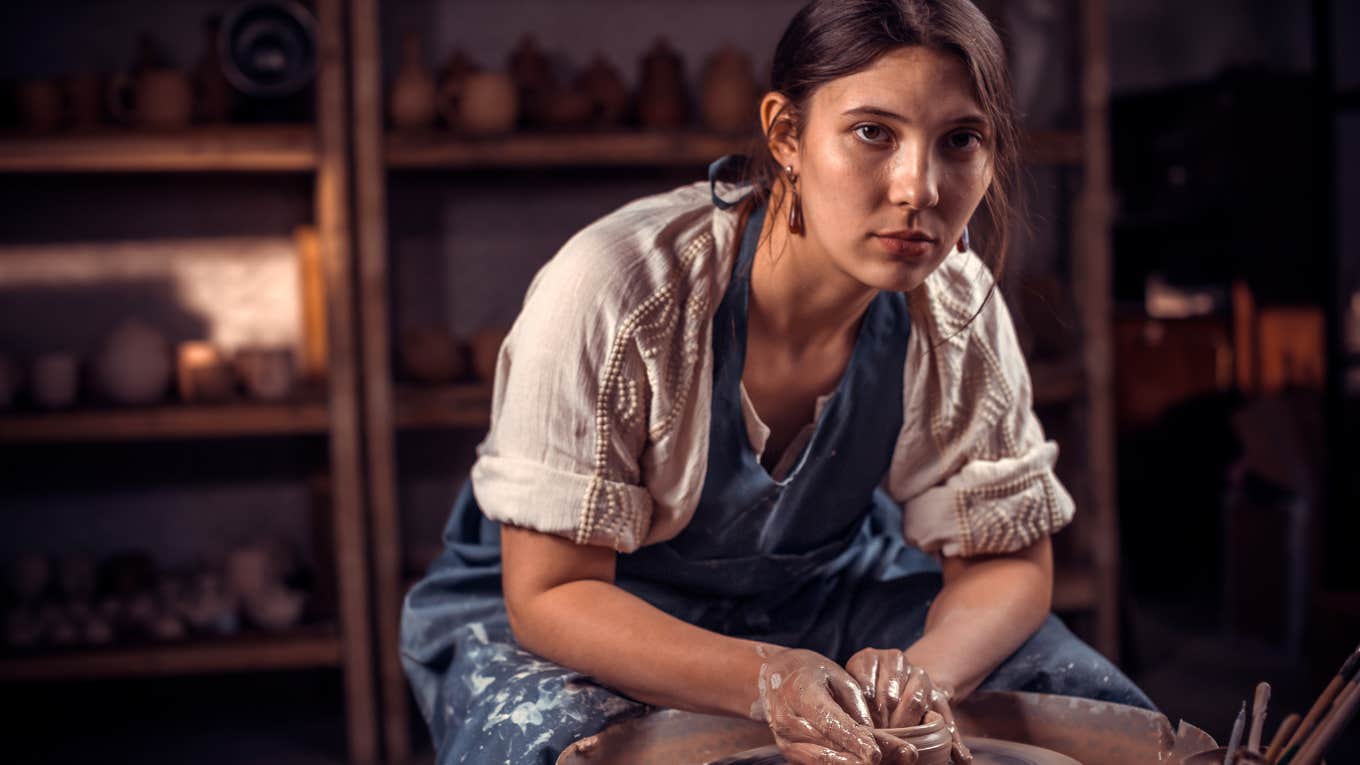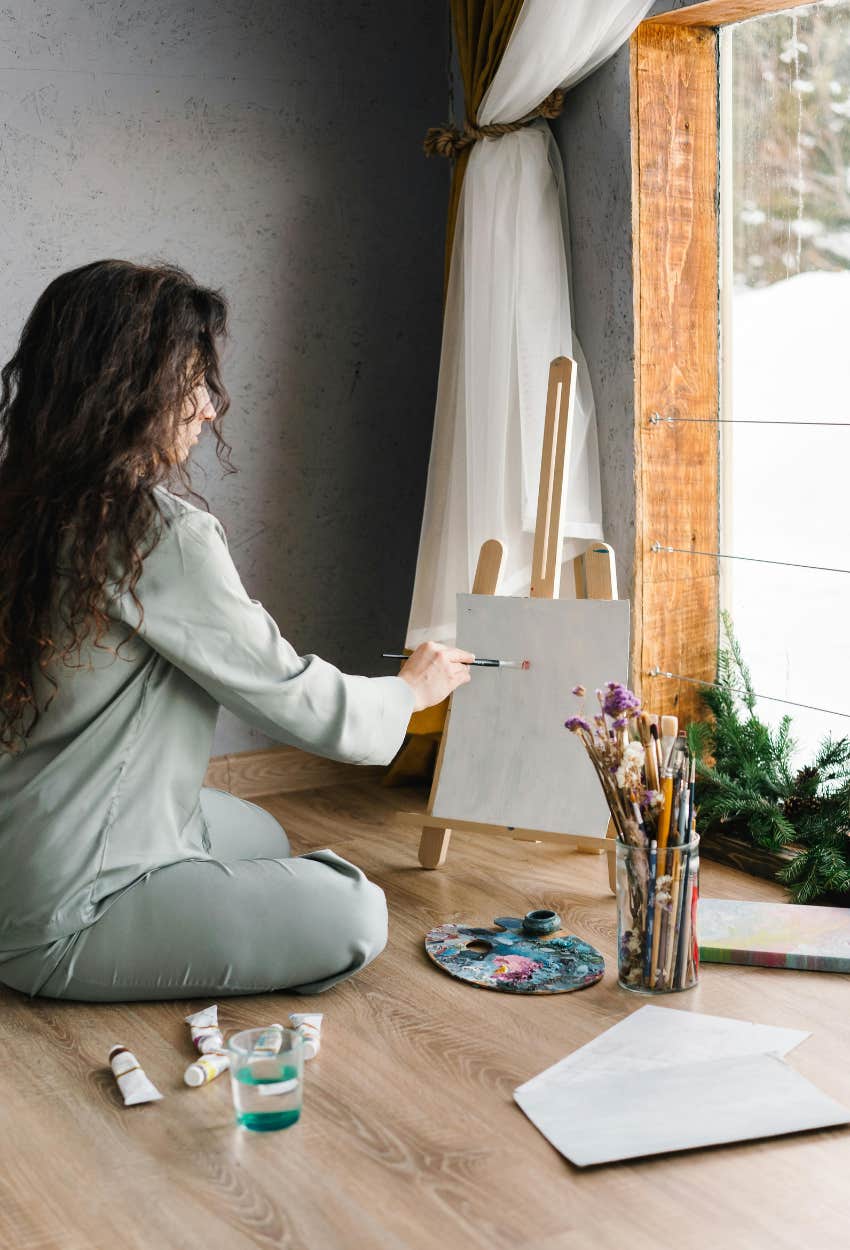Why Creative People Often Come From Broken Homes, According To Research
Creativity and adversity might go hand in hand.
 Stop war in Ukraine | Shutterstock
Stop war in Ukraine | Shutterstock Considering how beautiful and otherworldly creative endeavors can be, you'd think that artists would have come from such loving and passionate homes to possess talents that are able to move others emotionally. As it turns out, the greatest art is often born from pain, grief, and strife. While artistic talent can no doubt flourish in a two-parent household where a child is supported in their dreams, it seems there are also a plethora of creative individuals who come from homes that aren't quite as cookie-cutter.
Carlo Valerio Bellieni, an Italian professor of pediatrics, published a study that explored the development of human creativity. He narrowed it down to two different paths: "serene and pleasant parental models that inspire a child to thrive and improve," or "a way to manage the anxiety that stems from the absence of these models."
Research found the reason why creative people often come from broken homes.
"Some academics have proposed a model to explain this phenomenon. Up to a certain level of separation or neglect from parents, the capacity to develop talents grows, but beyond a certain limit, this decreases and alterations in social behaviour become more acute," Bellieni wrote, sharing the findings from his study with The Conversation.
 Mikhail Nilov | Pexels
Mikhail Nilov | Pexels
He explained that many creative adults will usually put down the roots of their talents during the first few months of their lives, and will spend the rest of their time honing those skills and behaviors that were learned during adolescence. He found that when young people experience trauma during their childhood, it causes them to create a "parallel mental world" that they use to shield themselves from the pain.
"The conclusion is that, paradoxically, children raised in an unfavorable environment can develop their own inner creative world to survive the stress, but in several cases, at the cost of producing mental health disorders," Bellieni explained in his study.
Children who experienced intense childhood trauma were more likely to have enhanced creativity.
Similar to Bellieni's findings, a study of 234 performing-arts professionals found that those who experienced intense childhood trauma — about 18% of the participants — reported higher levels of anxiety and internalized shame. However, "they were also more fantasy prone, a factor that may enhance creativity."
The Research that was published in the journal Frontiers in Psychology also found that for these artists, "the creative process was intensified and (highly) valued." They were able to "enjoy the creative performance experience, which may indicate more creative resilience." Researchers were able to analyze participants in a larger study and observed the effects of performance stress.
 Jansel Ferma | Pexels
Jansel Ferma | Pexels
Participants filled out the Adverse Childhood Experiences survey, in which they reported whether they experienced one or more of 10 forms of abuse, including physical abuse, malnutrition, or living with a parent who had an active addiction. Researchers found significant differences between those who experienced three or fewer forms of abuse and those who suffered four or more.
Artists in the latter group "were more aware of a loss of a sense of self, a greater sense of contact with a force beyond themselves, greater emotional intensity that coexisted with emotional stability, a heightened awareness of technical and expressive abilities, and increased spiritual awareness during the creative process."
Adversity in childhood doesn't always have negative outcomes.
No one's childhood is perfect, and neither are anyone's parents. However, Bellieni pointed out that enhanced creativity is never a replacement for not giving a child proper care and attention.
Parents showing their kids support and proper guidance have been proven to be extremely important for a child's development, but parents can often suffer from their own mental and physical issues that may impair their ability to give their child the necessary love they may need. Bellieni explained, "The good news is that this research can help to identify and intervene when a child may be suffering. It also further highlights the deep, primordial psychological significance of children’s, and indeed adults’, talents and creativity."
However, whether creativity is shaped by loving and caring parents or in a home surrounded by loss and grief, it doesn't take away from the fact that artists have such a gift for transforming whatever life hands them into something beautiful and meaningful.
No matter what art is born out of, whether it's genetic talent or an outlet for grief, it still has the same impact on the people that consume it, and maybe that's the most important part of it all.
If you or someone you know has been a victim of child abuse, there are resources available to help. Call 1-800-4-A-CHILD (1-800-422-4453) to speak with a crisis counselor 24/7.
Nia Tipton is a staff writer with a bachelor's degree in creative writing and journalism who covers news and lifestyle topics that focus on psychology, relationships, and the human experience.

